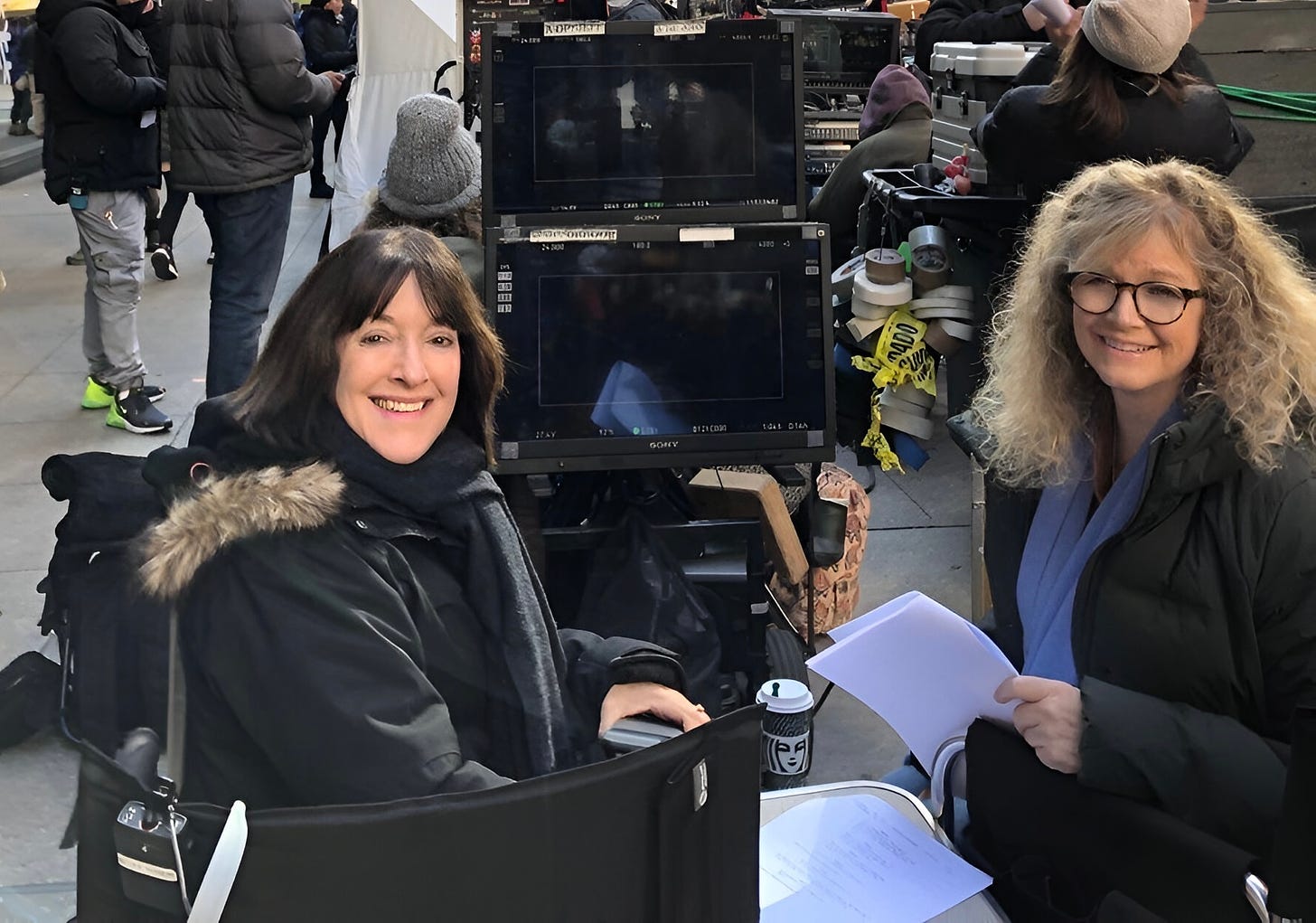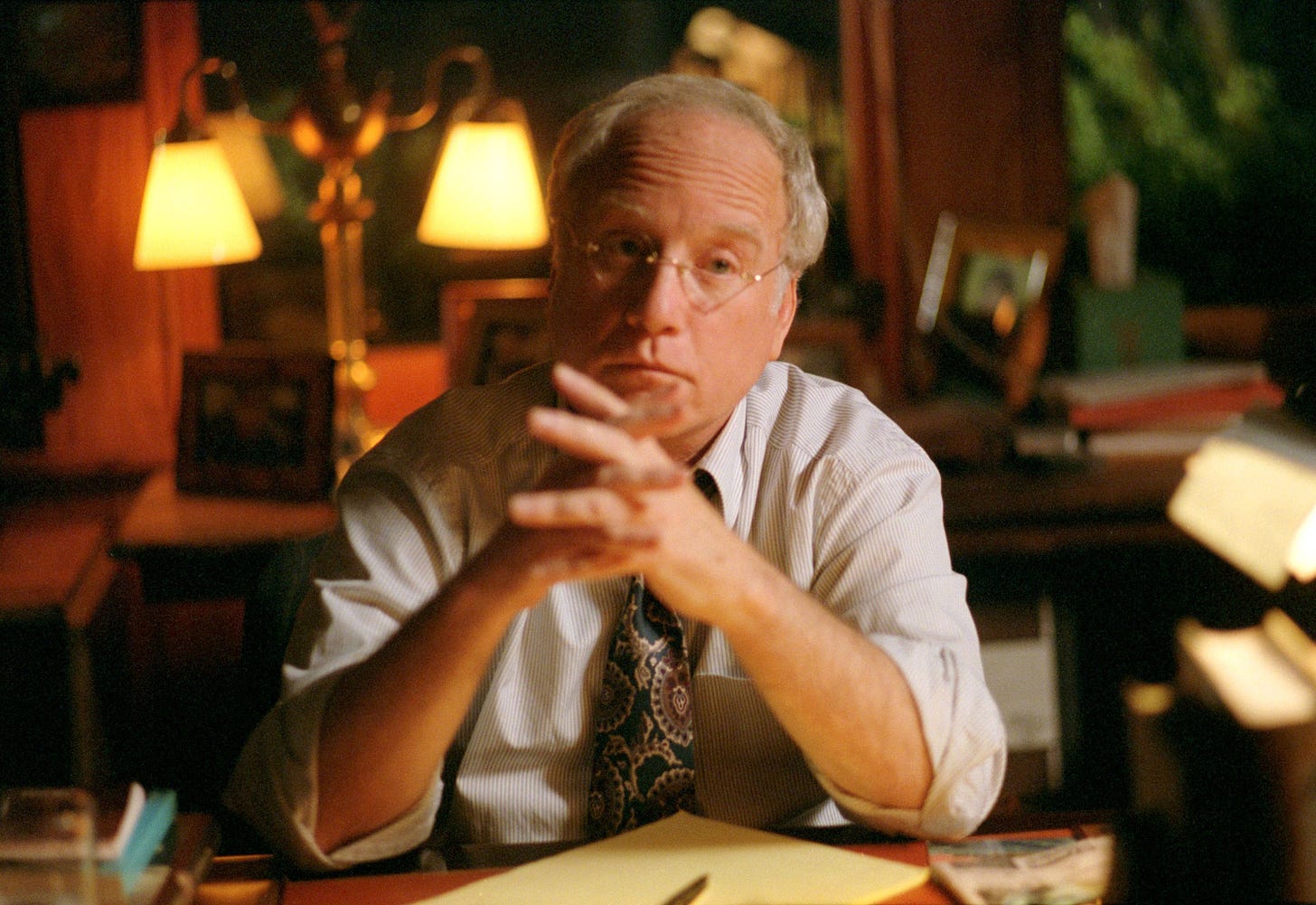Q&A: TV Vets Dawn Prestwich & Nicole Yorkin on 30 Years As a Writing Team
Consider this a masterclass on creative collaboration, showrunning, and surviving Hollywood
I’ve been a professional screenwriter for fifteen years, an experience that has been both creatively satisfying and spectacularly lonely. Every single time I sit down in front of my computer, it’s just me and an empty white screen. No one else knows what goes into every word I wrestle onto the page, the decisions behind them, why they mattered to me. This isn’t the case with all writers, of course. There is a small percentage of us who opt to write in partnership with others. Most of these writing teams do so intending to build a long-term relationship together - such as Dawn Prestwich and Nicole Yorkin, who have been writing as such a team for thirty-three years.
I first met Dawn and Nicole at a Starbucks in Brentwood to discuss a television series I’d created that NBC had recently greenlit. They were part of the writing staff of “THE KILLING” at the time, which itself was enough to get me excited about sitting down with them — I was a big fan of their work on the series — but it was really who they were as human beings that grabbed me during that first sit-down. For reasons it’s not my place to discuss, they passed on the opportunity to work on my show — a decision I congratulate them for having had the wisdom to make, given the bullet they dodged — but our paths crossed again eighteen or so months later when we both appeared on
’s podcast The Writers Panel. After the live conversation, Dawn, Nicole, and I headed next door for dinner, and that’s when I truly fell in love with them. Their warmth is only matched by their generosity about what they’ve learned in this business. Ten years later, we are still very much in touch and, in Nicole’s case, we’ve even met up in London for tea and a fireside chat. In some ways, the artist-on-artist conversation you’re about to read is a continuation of one we’ve all been having for years.Dawn, Nicole, and I will be diving into their three-decade-plus relationship - how it began, the challenges it had to overcome to succeed, and the writers and people they’ve become as a result. Along the way, we’ll touch on the intricacies of their craft as a team, the profound sexism they had to endure early on in their career (I dare you no to gasp at their pregnancy tales), and their unique approach to running writers’ rooms.
If you’re unfamiliar with Dawn and Nicole’s career, they’ve written on more TV series than you want me to list here, trust me. Amongst them are “PICKET FENCES”, “CHICAGO HOPE”, “JUDGING AMY”, “CARNIVÀLE”, “BATTELSTAR GALACTICA”, and “THE KILLING”. They’ve been producers on the shows they work on since the mid-nineties, and earned their first creator credit with “THE EDUCATION OF MAX BICKFORD” in 2001 - an especially traumatic experience we’ll discuss in detail. More recently, they created “Z: THE BEGINNING OF EVERYTHING” and “HIT & RUN”.
There’s so much for aspiring, emerging, and established TV writers to learn from this conversation. In so many ways, I think of it as a masterclass in creative collaboration, showrunning, and surviving Hollywood. I know I learned a thing or two.
COLE HADDON: First off, I love you two and I’m so glad we’re finally going to get to have this conversation. We were meant to start several months ago, but got waylaid by the Writers Guild of America strike. Nicole, you sat on the MBA Negotiating Committee. We haven’t discussed the outcome yet – how do you feel about the contract we got?
NICOLE YORKIN: I am beyond thrilled with the contract we got. The biggest contract in decades. But it’s solely a result of the incredible support we had from our members. I’ve been a Guild member since ’88, I believe, so this is technically my third strike - but the solidarity we experienced this year during those five months we were out on the lines is like nothing I’ve ever experienced before. That was the fuel that kept the NegCom going and inspired us to hold fast in the face of the hardships faced by members being out of work for so long.
CH: As a writing team, you two will hugely benefit from an end to you two being counted as a single writer with regard to the points you rack up to qualify for health insurance. It’s a life-changing new rule in the MBA for many writing teams such as yourselves.
NY: I was so thrilled that we were finally able to do something for teams in this contract.
DAWN PRESTWICH: Yeah, it’s nice to finally be considered a whole person, after all these years.
NY: We’ve been a team for more than thirty years. For thirty years we’ve had to count as “one writer” in terms of salary and health insurance points. Now, all members of a team will be treated as if they wrote the script on their own, in terms of health and pension contributions, making it much easier for individual members of the team to earn the minimum amount necessary to qualify for WGA health insurance.
CH: Before we get into your back stories, who you are, how you met, that sort of thing, let’s begin with a little craft talk. Writing teams make up a small percentage of the WGA membership and are much rarer outside of America, from my experience. How they work seems to vary from team to team, too. How do you most like to write together? Do you sit in the same room? Work apart and revise each other as you go along? Tell me.
DAWN PRESTWICH: Well, honestly, we have to fight over every fucking word.
CH: [Laughter] I love the honesty.
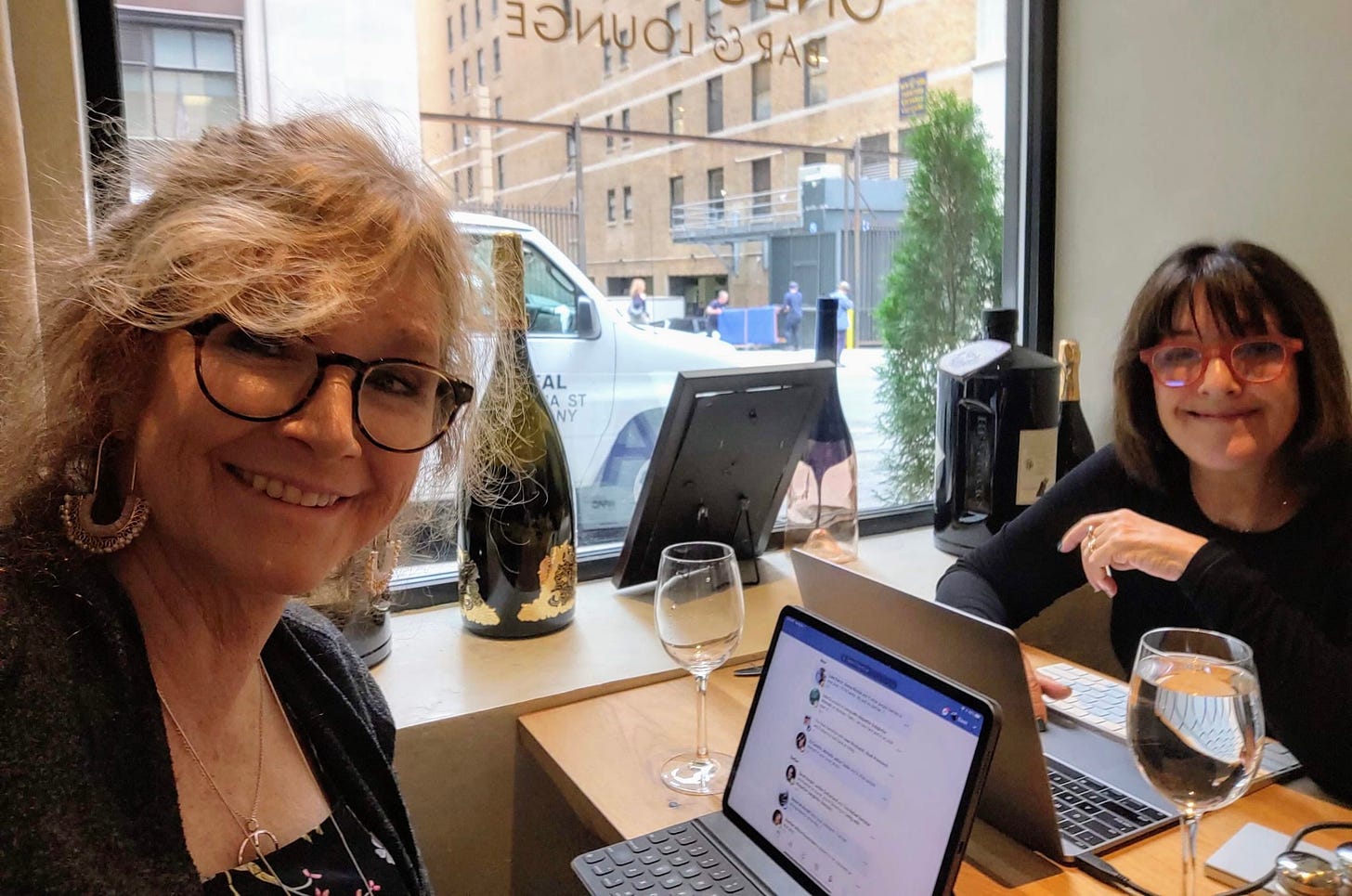
DP: Of course, at this point, it usually isn’t a fight, as we’re generally in sync. But we definitely have our differences - ask our assistant or anyone who’s been in the office next to us over the years!
CH: What happens when you do have a difference of opinion?
DP: The rule is, if we can’t convince each other of what we think works best, then we must come up with an alternative idea. This is our superpower, I believe. Because it forces us to dig deeper and find the perfectly right word or idea to put on the page. Because there’s so much haggling to be done, we write in the same room together, or over Zoom. It used to be late nights on the phone, after we’d put the kids to bed and had already had a long day of work. But now, it’s much more civilized and efficient.
Nicole types it all in the script, and we talk through every sentence out loud. But nothing makes it to the page unless we both agree on the words. I know that’s inefficient, but it really doesn’t take us much longer than other individual writers, and our first drafts tend to be like other writers’ second drafts because there are two brains agreeing on what’s on the page. In this way, we sort of create a third writer. She’s better than both of us. She’s also thinner and perpetually young.
“We sort of create a third writer. She’s better than both of us. She’s also thinner and perpetually young.”
CH: [Laughter] Do you agree, Nicole?
NY: “She” is definitely more multi-faceted than we are. A Presbyterian from Texas and a Jewish woman from Los Angeles – that covers a lot of ground for this “third writer” to draw from. Although we both went to college in the Bay Area!
CH: As a writing team, where do you complement each other?
DP: Yeah, easier for me to think about what I depend on Nicole for - a lot!
At a very basic level, Nicole is a genius note-taker. She’s the only person I know who can listen, think, and take notes at the same time. I rely heavily on her ability to throw down contemporaneous notes on everything we’re discussing. So, she’s sort of the institutional memory of our work partnership. She has a million little notebooks where all our conversations and phone calls have been documented, to a certain extent. I have no memory of yesterday, much less the last thirty-three years of our lives.
CH: What are some of your weaknesses — or rather, skills you aren’t as strong at or enjoy as much — that Nicole carries more of the creative weight when it comes to them?
DP: I think I tend to be the one who’s constantly vomiting out idea after idea, and she’s sort of, “Not that, not that, that’s stupid, okay maybe that.” Or she’ll say, “Shut up and let me think!” I’m a blurter, she’s a thinker. [Laughter] Sometimes, I’ll also feel that we really need something specific, a weird twist in a line, or a surprise in a story, and I’ll say, “Come on, Nicole, give me something weird here, I know you have it in that head of yours.” And she’ll get annoyed, and feel like it’s unnecessary, and eventually blurt out the oddest, most delightfully original idea that she’s absolutely not sure we even need, but I’ll grab onto it and insist that we must use it. And we do, and often it’s the best thing in our script. I don’t know why she keeps me around, honestly, but I’m good for a few laughs occasionally.
CH: What about you, Nicole, are you able to identify strengths Dawn has that counterbalance skills — maybe we’ll call them tools — you have? Or things that you aren’t as good at or enjoy using as much?
NY: Dawn is always pushing us to come up with the best line or turn of phrase we can find. She’s more of a Type B and I’m a type A, so Dawn’s calming influence can be helpful at the most tense moments - even when her calm irritates me! Overall, I think Dawn is so creative because of her ability to be relaxed as we write. She always creates a safe space to work and be creative, which has been incredibly essential over our long — and often stressful — career.
CH: Let’s take a trip backward to your childhoods. Where did you two come from and was Hollywood always the end game for you?
NY: I actually grew up in Hollywood – although, not literally. My father [Bud Yorkin] and Norman Lear were partners for twenty-five years, and through their company Tandem Productions, produced a number of films and television series from the sixties to the eighties.
CH: I can’t believe I forgot this amazing detail about your life.
NY: Norman, his second wife Francis, and their two daughters, Maggie and Kate lived around the corner from us in Encino - which is where I lived for the first six or seven years of my life. Because of growing up in the biz, as they say, it wasn’t at all my end game for many years. From an early age, I had a really realistic perspective on the “business.” I saw the successes, the failures…I learned early on that putting your everything into a project you loved didn’t necessarily guarantee that project would be a success critically or financially. It really gave me pause, to be honest.
So, after graduating Berkeley, with an English major, I became a journalist. I was a cityside reporter for the Los Angeles Herald Examiner, which was the second paper in Los Angeles for many years. It died in 1989. That was a fantastic learning experience for me. I covered everything from police brutality to the last visit to California by HRH Queen Elizabeth II and everything in between. I was even nominated for a Pulitzer for a two-part series I did about a twelve-year-old prostitute, “Angel.” But after six years, I was feeling a bit burnt out. That’s when I applied to the American Film Institute as a writing fellow and met Dawn. And ultimately. decided to try my hand at writing one-hour drama.
CH: What about you, Dawn?
DP: I grew up in Dallas, Texas. I knew no one in Hollywood. I was clueless and naive and just a cockeyed optimist — still am, which can be a good balance to Nicole’s wry pessimism — and I think, like many kids, I thought I wanted to be an actor. Once I was in college at Stanford, I thought maybe I wanted to be a director. It never occurred to me that the thing I loved doing most of all — writing stories — was something you could do to earn a living. I’m grateful I lacked ability in so many other areas that I was forced to really figure out if this storytelling thing was actually a viable career!
After Stanford, I moved to L.A., worked as a personal assistant to a pretty awful talent manager who had me buying her bananas in gradations of color from green to yellow, paying her gigolo, and picking up medicine for her bad case of crabs. Little Texas girl lost a little of her naïveté!
CH: Honestly, I want to see that TV series now. How did you break into screenwriting?
DP: I applied to AFI and started believing I might actually be a professional writer some day. I met Nicole the first day. We became fast friends, and eventually got an office together after AFI, just to have somewhere to go to write. Eventually, we started writing together on a few projects, and that turned out to be way more fun.
“In those days, showrunners, who were predominately male, didn’t feel they needed to hire more than one woman on staff.”
CH: How conscious were you at the time of the obstacles you would face in Hollywood as women?
NY: I had a small idea. My mom was a feminist activist, and I knew that equity wasn’t a thing in this country. But I had no idea about the lack of parity in the business, until we started trying to get hired. We were given our first job by a woman, Beth Sullivan, who was just crazy enough to hired two women recently out of film school without any experience. It became a little harder after that first job, “THE TRIALS OF ROSIE O’NEILL”. In those days, showrunners, who were predominately male, didn’t feel they needed to hire more than one woman on staff.
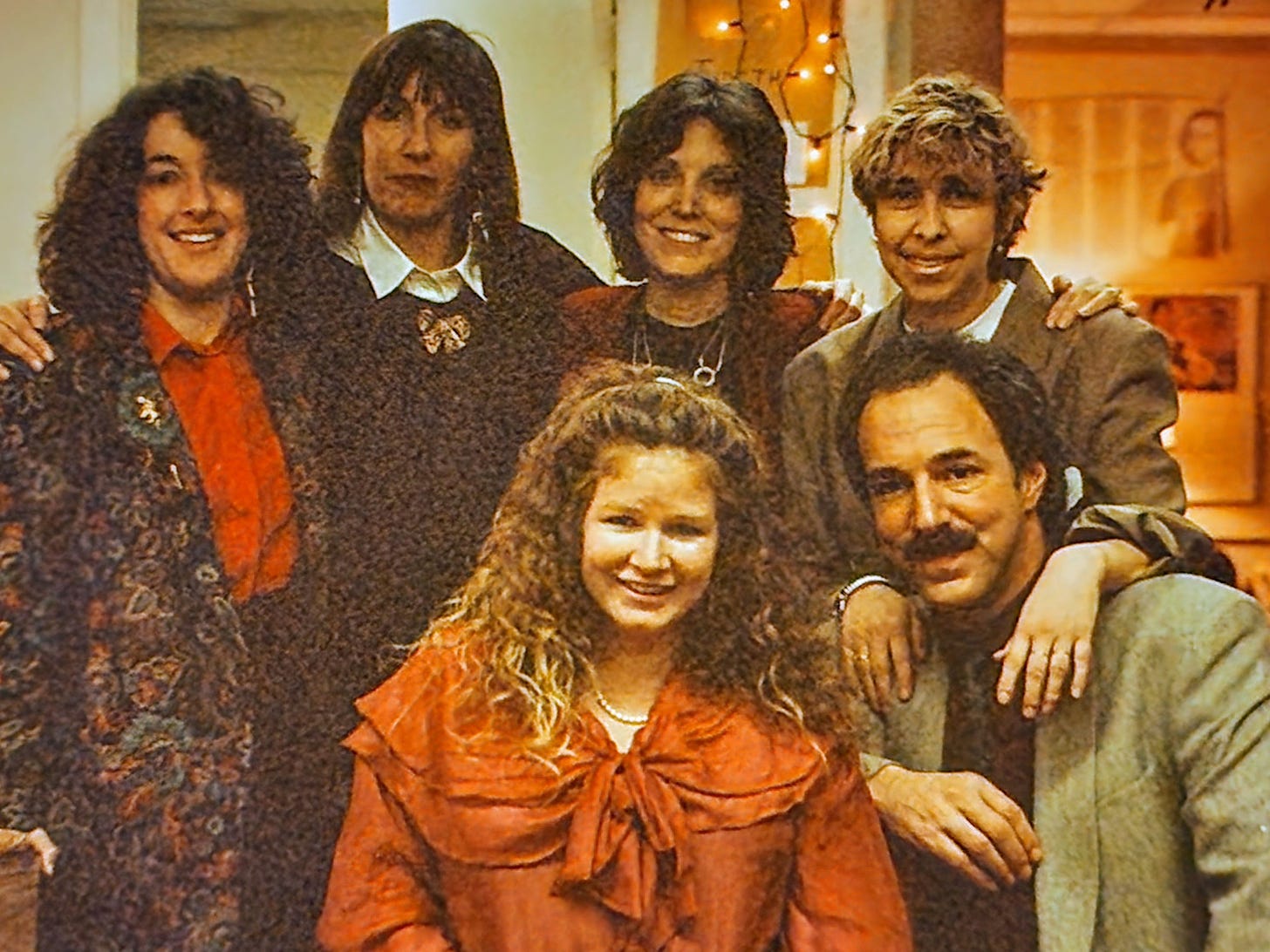
NY (cont’d): I’ve been explicit about the ugly sexism we faced on our third show, a prime-time soap run by some horrible men. Of course, there were no people of color. And in that case, there was only one other woman on staff. There were daily arguments about whether real women call their underwear the more prurient “panties,” as the male writers maintained — and had every actor say multiple times per episode — or “underwear”, as the women claimed. “Every single one of my three ex-wives called them panties!” the Executive Producer screamed at us.
One day, we walked into the writers’ room after lunch to find a cruel, juvenile caricature of our fellow woman writer on the whiteboard. It sat there staring at us all afternoon because none of us were brave enough to erase it. Another time, I was pitching a story, based on my third wedding anniversary, where I’d worked late, then rushed to the mall to find my husband a present, only to bring home two dozen chocolate chip cookies as a gift. “Wow, you really are a fucking bitch, aren’t you?” the Co-EP said to me.
CH: Jesus. Jesus to all of this.
NY: As fairly low-level women writers at that time, we didn’t know who to tell or where to turn for help, so we did nothing. This is partially what inspired me to join the WGA Board six years ago.
“You were just lucky to be invited in the room. We just accepted that that was the world we lived in - take it or leave it.”
DP: The sad thing was, we didn’t actually identify any of that as trauma, at the time.
CH: Tell me more about this.
DP: It was more like, to be a woman in a world of men meant you had to grow a thick hide, because you were not always welcome there. You were just lucky to be invited in the room. We just accepted that that was the world we lived in - take it or leave it. We had one showrunner tell us to our faces that he already had a couple of women on his predominantly male writing staff for a big network show, and he was concerned that if he hired us, “There might be too many female voices in the room.” I mean, yeah, who wants to hear all those women actually speaking? Having ideas, maybe even being better and smarter than some of those men? Scary! Of course, the show had multiple female characters, but it never occurred to him that women writers might have a more specific take on those characters, that would make them ring truer and play better.
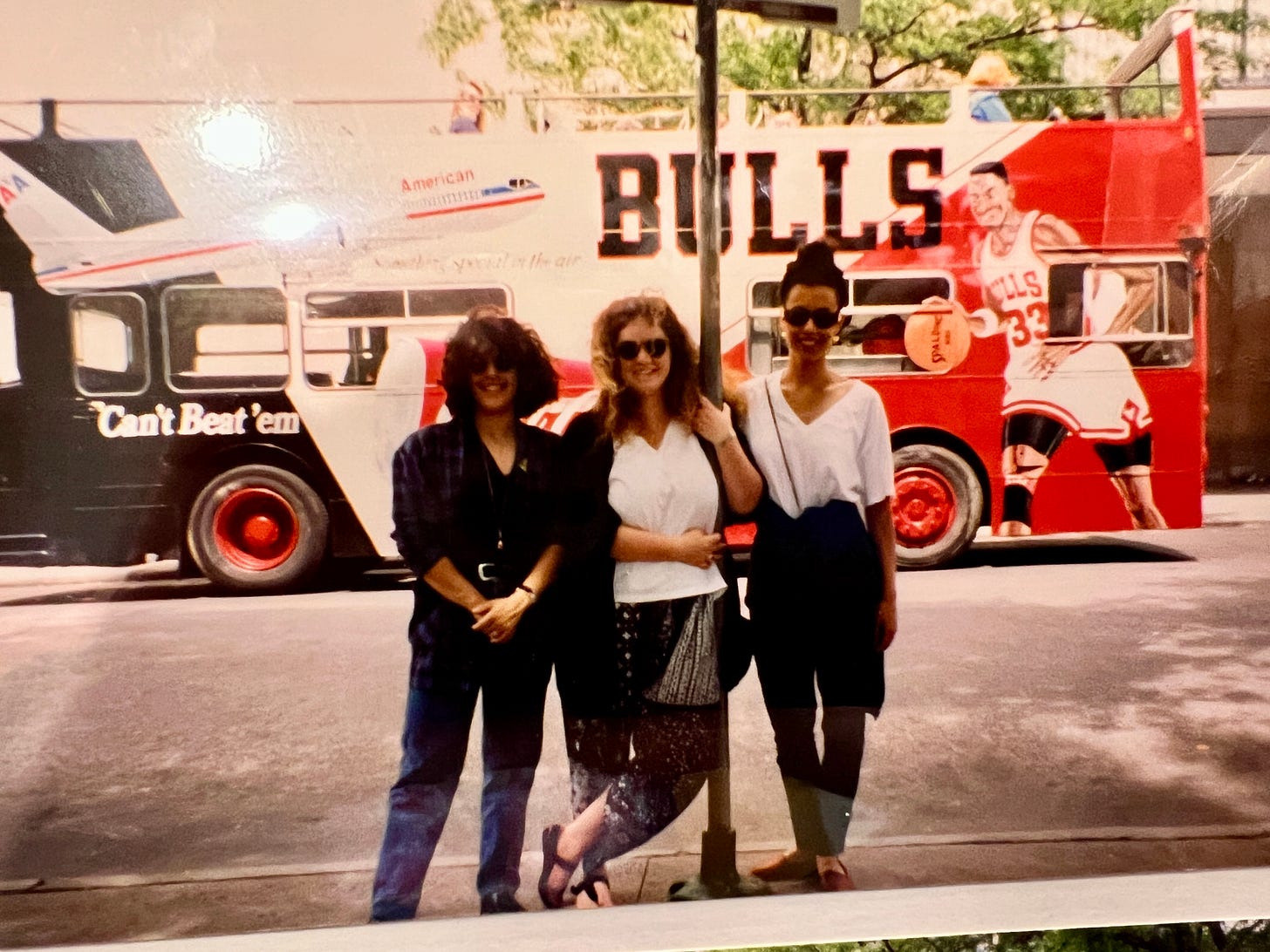
CH: We’re going to move on in just a moment, but I recall a dinner with you two when my wife, a screenwriter, was pregnant. You had some stories about your own struggles as screenwriters and new parents.
NY: Trying to get a job while I was pregnant with my first child, Julian, was a nightmare. First of all, we were pretty low-level still. Dawn had already had her son Noah and I was about nine months pregnant in June, when network TV was hiring. There was no streaming or cable back then. I resolutely assured every showrunner we met with that my doctor had assured me that I could be back at work in a few weeks after giving birth. As it turns out, it was another woman showrunner who did give us a chance, but even in that situation, I started getting pressure to come back to work two weeks after having a C-section. I made it back at two-and-a-half weeks post-C-section, and I can tell you, that wasn’t the ideal way to do it, although I was able to bring my son and a babysitter to work with me.
Next time around, Dawn and I both got pregnant while we were on “CHICAGO HOPE”. In that case, we were Supervising Producers and informed our EP, John Tinker, that we were coming back with babies and would need an office for them and a babysitter. He was very amenable to that, and both kids, who were born ten weeks apart, spent several months on the Fox lot with us doing that show.
“I started getting pressure to come back to work two weeks after having a C-section.”
DP: So yeah, we started getting a little more assertive at that point. No one was going to go out of their way to make it easier for us to work, so we just had to do it ourselves.
CH: Which is probably an excellent place to pivot to you two making the leap to creators and showrunners yourself, which happened with “THE EDUCATION OF MAX BIXFORD” in 2001.
NY: We won a bake-off situation and snagged Richard Dreyfuss to do television for the first time. He played an American Studies professor at an all-woman college like Smith, whose life was falling apart. He was a widower, newly sober, with two kids, one of whom, his teenage daughter — played by Katee Sackoff in her first big role — he had a fractious relationship with. A former student — Marcia Gay Harden, coming off an Oscar — had just been appointed chair of his department over him, and his best male friend had just transitioned to being a woman.
CH: So, it was ahead of its time. What was the experience like?
NY: “MAX” was difficult and painful. The show premiered in a primo time slot, got great reviews, and then 9/11 happened. As people started tuning out fiction and watching more news, our ratings slipped. Those who ran CBS at the time started pressuring us to change the show, which was quite edgy, and make it more family-friendly. We were willing to make some changes, but not transform “MAX” into a completely different show. Luckily for CBS, our co-EP, a close friend at the time — who’d never written an episode of the show — went behind our backs to CBS and volunteered to give them what they wanted.




